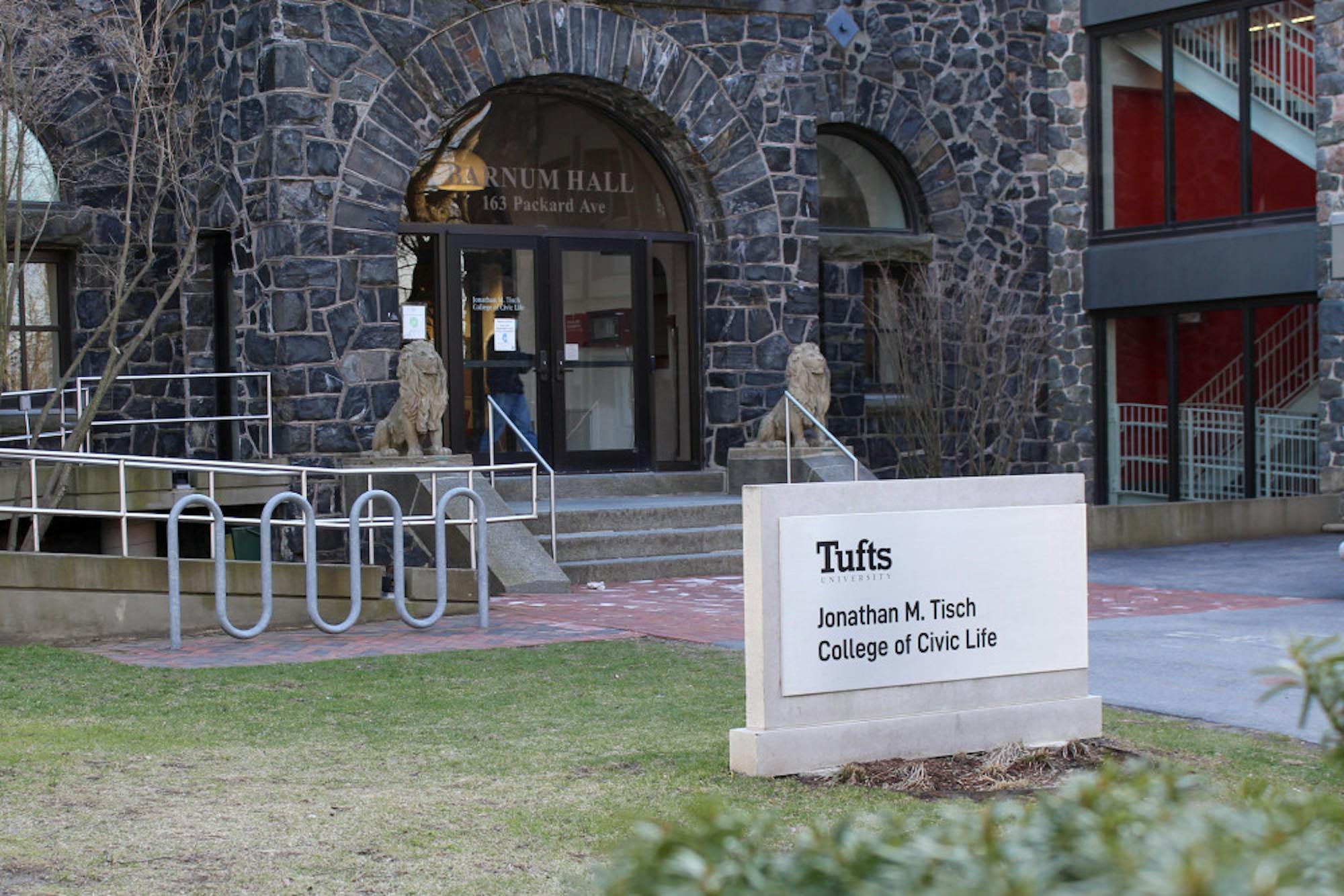Carol Joyner, director of the Labor Project for Working Families at Family Values at Work Action, spoke with Tufts students on Sept. 22 as part of the Civic Life Lunch Speaker Series hosted by Tisch College. Joyner discussed her more than two decades of work on issues surrounding workers’ rights, including advocating for paid leave and for more comprehensive child care for workers.
Joyner was brought to campus in collaboration with Tisch College’s fall speaker series theme, the fight for democracy. While introducing Joyner, Dayna Cunningham, dean of Tisch College, spoke about the significance of Joyner’s work.
“It’s really important to focus on the challenges and the opportunities now facing us, given what we’re learning about the weakness — frailty — of our democratic institutions,” Cunningham said. “What are all the things that contribute to strengthening democracy?”
Elizabeth Remick, a professor of political science at Tufts, moderated the discussion titled “Building Worker Power: The Fight for Paid Family Leave.”
Remick first asked Joyner to discuss how she got involved in advocating for paid family leave. Joyner said she began her career teaching adult education at a healthcare workers union, at which point she decided she wanted to spend her career finding ways to support union members.
“One of the things I focused on more than anything was how to help union members who were trying to uplift themselves in healthcare careers … because they had children and family obligations,” Joyner said.
At the union, peers turned to her on issues of child care and support for families.
“I became this person at the union who could think through policy, through programs to support working families,” Joyner said. “And eventually when the union negotiated a child care fund through collective bargaining, I became the founding director of the child care fund.”
Remick then asked Joyner to shed light on her work at Family Values at Work. Joyner spoke of working with state coalitions to pass child care and paid family leave bills, and creating a dialogue between states so that each can share knowledge about policy and the process of passing these bills. Joyner praised Massachusetts as one state that has passed comprehensive family legislation.
“In Massachusetts, where they’ve done a lot of this work, we’ll connect them to groups in Arizona, who are trying to do the same thing so that they can share knowledge and they can talk about how bills got passed,” Joyner said. “It’s peer learning.”
Remick then asked Joyner about state-level-paid family leave policy. Joyner discussed the beginnings of state-paid family leave policy in California. She compared the California bill with the federal bill from the Clinton administration, the Federal Medical Leave Act, which offers unpaid leave and is only accessible to about half of the country’s population.
“The California state federation worked together on a bill for paid family medical leave, and got that done in one year, which was a political miracle,” Joyner said. “They looked at FMLA, and said, ‘well how can we structure a program that’s paid?’ And they did basically that: they took the basis of FMLA, they created a paid system.”
Joyner then spoke of the formation of the coalition that would work to create nationwide paid-leave programs like the one in California.
“Right after [California’s bill passed], about six or seven women from different parts of the country got together and said: we want more, we want to do that in our state,’” Joyner said. “They would create a network, and they would fund money, they would share the money, and they would fund ideas, and they would share ideas and they would be peer learners in this journey … that’s what initiated Family Values at Work.”
Remick then asked Joyner’s opinion on the prospect of nationwide paid family leave in the next five years. Joyner spoke about Build Back Better — Biden’s recent budget bill — and her organizations efforts to get paid family medical leave included in the bill.
“I was super hopeful until a year ago … really hopeful — we threw everything on the wall for Build Back Better,” Joyner said.
Joyner spoke specifically of West Virginia, where her organization funded many groups doing similar work for paid family leave. Joyner criticized Sen. Joe Manchin’s lack of support.
“There were a bunch of congresswomen who were like … this one man isn’t going to tell us what to do, and so they put [paid family leave] back in … at Nancy Pelosi’s insistence,” Joyner said. “However, Joe Manchin ultimately decided that he’s not going to pass any bill.”
Despite these setbacks, Joyner remains hopeful that her work will come to nationwide fruition.
“We’re hoping that if we can hold on and we can get more margins in the Senate, then we can maybe have a budget reconciliation package next year that’s devoted completely to care, that includes child care,” Joyner said.






